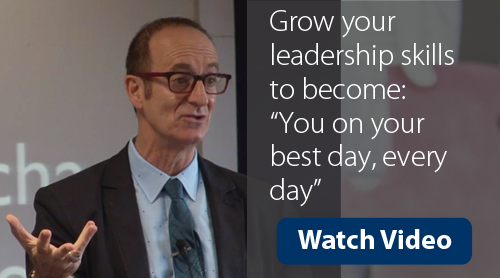
The truth is that truth is a very rare commodity in business. Would you agree that nobody tells the absolute truth in business? Would you agree that there is usually a web of half-truths, deceits, conflations, exaggerations and misdirections? Have you become – had to become – adept at convincingly telling at least half-truths as if they were the utter, honest-to-god truth?
But, hey, what’s a few porky pies if that’s what it takes to win the business?
Everybody does it. You have to do it if you want to get on. We all do it – so don’t point your moral finger at me!
But the question is whether it matters?
That’s not a philosophical question. It’s a practical, business question, and here’s why it does matter: business is built on one core attribute – trust – and what is trust other than the belief that what another person says is true, and what they say they are going to do, they will actually do? Trust & Truth are a family firm since way back when.
If our perceptions, beliefs and business relationships are built on webs of deceits, then our trust is not only misplaced, it is being actively abused, and, of course, we know it is.
We do it, so we assume (even if sub-consciously) that others are doing it to us.
We actually know we’re not being told the whole truth.
We actually know that we cannot trust our business partners, suppliers and clients. That’s why we have agreements and contracts and evidence in writing – if only an apparently chatty, matey email. That’s why we have invoices and terms of business. We know we can’t trust those we do business with because we know they can’t trust us – and we know our politicians, our government, are even less trustworthy.
Obviously, this is nothing new. Just imagine if the reality was that Noah sold a used ark telling the buyer that God had told him personally that there was going to be a second flood, and that, absolutely, he could get all the animals in two by two, no problemo. Hadn’t he, Noah, hand on heart, already proved that?
What’s new is the ark of marketing: an ark into which, so we are told, everything can fit, everything works, and everybody gets what they want (even if they don’t need it). Salesmanship is the honest-to-goodness art of lying to your face, but marketing, by contrast, is more pernicious. Marketers, like lawyers, don’t believe there is such a thing as truth. They are highly-skilled (some of them) manufacturers of “Truth”, happy to create miracles of misdirection that turn fizzy, flavoured water into a magic potion called “Fantasy”.
When a company decides it needs to spend more on marketing, it is deciding to spread more lies more effectively because the truths of its products are not powerful enough in and of themselves. A little harsh, you may say, but consider a butcher whose meat is good, fairly priced and whose happy demeanour is a pleasure to behold. His customers tell non-customers, some of whom become customers, and the customer base expands. That’s marketing without Marketing. What’s more, there’s no need for Marketing.
Good products and services sell (market) themselves.
What you might call Integral Marketing: building into a product or service the features that sell them, so don’t have to be fabricated, and marketing is (largely) unnecessary. We know this: when Marks & Spencer made good clothes at good prices they spent not a pound on advertising. So we could say… marketing is an admittance of product failure, so, surely, the logical response would be to invest in product improvement, not marketing?
What marketing does is to create a perception of truth out of a web of distractions and deceits. You could call that a conspiracy to defraud. That is not to say it tells actual lies - more that it makes up stories about who we consumers are, how we love their products, and how they enhance our lives. We consumers participate in this conspiracy of who-we-should-be every time we buy the products that tell us lies about who-we-actually-are.
We collude. We join the conspiracy. We condone it. We believe. And we reconcile ourselves to the truth of the untruths.
We have become reconciled to falsehood, and we don’t struggle against any of it. It is the way it is. When Ben & Jerry and Innocent built their business on the truth that they would never sell out, but then predictably did, how did we react? We shrugged our shoulders, and bought even more of their ice cream and juice. The truth is that the “Axis Of Untruth” has brands at one end and consumers at the other.
What do you think?
This blog was written by Robert Craven and Martin Price of The Directors’ Centre, helping growing businesses to grow.
More from Vistage:
Our gift to you...
Apply now for your personal leadership consultation with a Vistage Chair. They'll help you assess areas of strength of your business and identify areas of potential growth.


